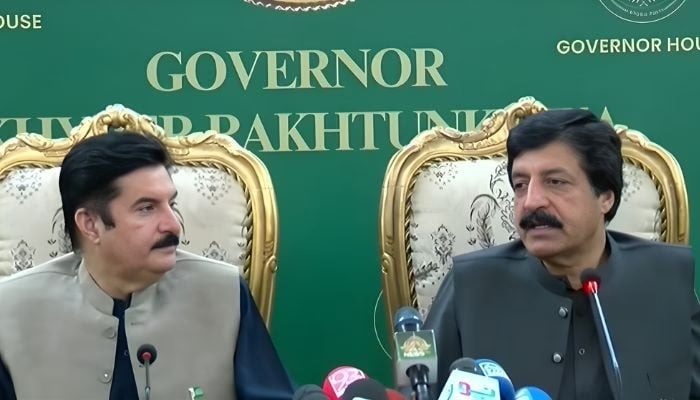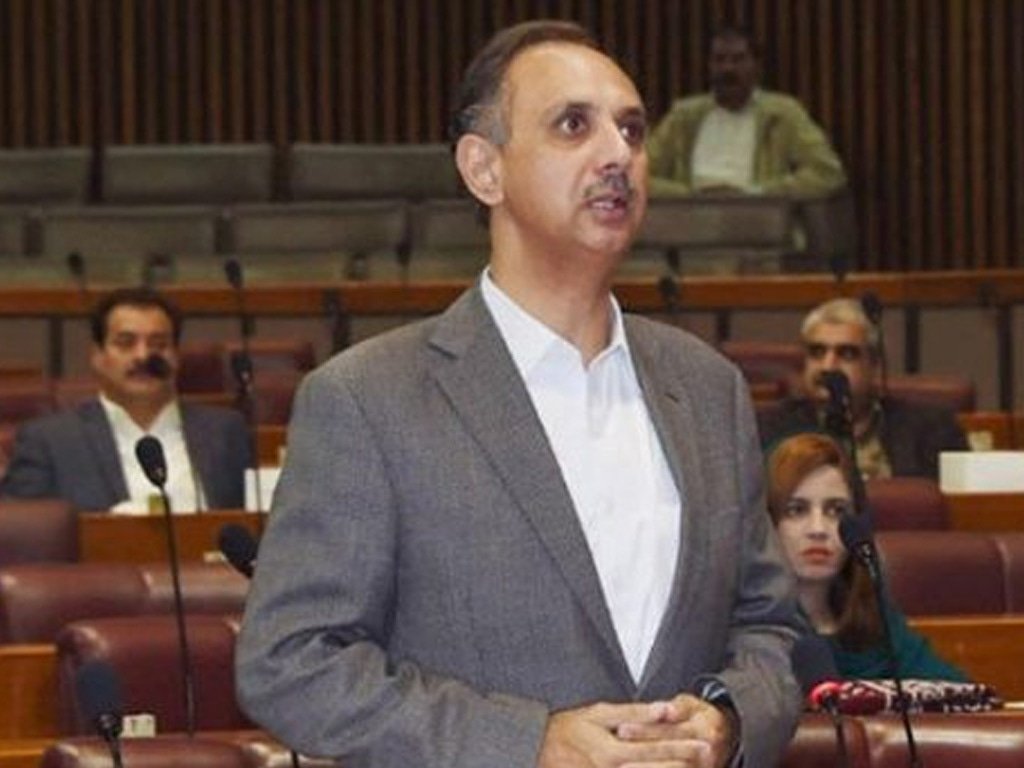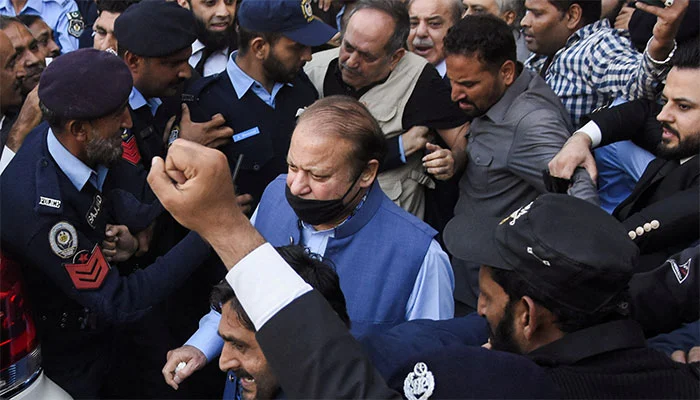Punjab Governor Sardar Saleem Haider Khan recently described the PPP-PML-N alliance as a “compulsion, not love,” emphasizing that the fragile political balance in the country could be easily disrupted by even a small act of irresponsibility. Speaking at a joint press conference with Khyber Pakhtunkhwa (KP) Governor Faisal Karim Kundi, Governor Khan shed light on the motivations behind the alliance and the current political and security challenges facing Pakistan.
Formation of the PPP-PML-N Alliance
The PPP-PML-N alliance was formed following the 2024 General Elections to ensure political and governmental stability in Pakistan. Governor Khan stated that the decision was made out of necessity, not preference, as no single party had the strength to form a stable government alone. At least two parties had to join forces for the government formation,he said, adding that the unity between the two major parties was crucial for the continuity of the democratic process.
Governor Khan highlighted that the alliance was primarily established in Pakistan’s national interest. Pakistan is our top priority, he said, explaining that while political differences exist, maintaining stability in governance remains more important than party rivalries.
Political Costs and Challenges
Despite the benefits of stability, Governor Khan acknowledged that the PPP-PML-N alliance has come with political costs, especially for the Pakistan People’s Party. PPP’s participation in the government was out of necessity, which has cost the party politically,he admitted.
He also noted that the workers and supporters of both parties continue to struggle with accepting this coalition. This discomfort, according to him, stems from decades of political rivalry and ideological differences between the two parties.
The Punjab governor revealed that Prime Minister Shehbaz Sharif had assured the PPP leadership that their reservations would soon be addressed. Even the PML-N leadership has admitted it could not fulfil many promises, he said, implying that both parties recognize the challenges of shared governance.
Stability at Stake
During the press conference, Governor Khan issued a serious warning about the country’s political fragility. Even a little irresponsibility could derail the system,he said, urging all political stakeholders to act with restraint and responsibility. His comments reflected growing concerns about maintaining democratic stability amid increasing political polarization.
He also expressed his support for allowing Pakistan Tehreek-e-Insaf (PTI) founder Imran Khan to meet Chief Minister Sohail Afridi, noting that such meetings are important for maintaining communication and political reconciliation.
KP Governor’s Concerns on Security
Khyber Pakhtunkhwa Governor Faisal Karim Kundi also addressed the media, focusing on the deteriorating law and order situation in the province. He stressed the need for regular intelligence-based operations (IBOs) by security forces to counter terrorism effectively. Without regular operations, the law and order situation in KP will worsen, he cautioned.
Governor Kundi revealed that nearly 80% of terrorist activities in the province originate from across the Afghan border. He accused India of exploiting Afghan nationals for anti-Pakistan activities, calling for stronger border management and intelligence cooperation.
He urged Chief Minister Sohail Afridi to personally attend meetings related to law and order to improve coordination between the provincial and federal governments.
Call for a Jirga and Focus on Provincial Rights
To strengthen communication between Islamabad and Khyber Pakhtunkhwa, Governor Kundi proposed the formation of a jirga to discuss the province’s concerns. We must talk about our provincial rights and the NFC Award as our population has increased significantly, he said.
He emphasized that dialogue and collaboration were essential for addressing the challenges faced by the province, particularly regarding resource allocation and economic development.
Easing of Political Tensions
Governor Kundi also spoke about recent tensions between the PPP and PML-N, noting that relations between the two parties have improved following a meeting between PPP Chairman Bilawal Bhutto Zardari and Prime Minister Shehbaz Sharif. The recent differences between the PPP and PML-N have eased,he said, expressing optimism about continued cooperation between the two coalition partners.
This reconciliation, he added, would help the coalition government function more smoothly and allow both parties to focus on governance rather than political disagreements.
The PPP-PML-N alliance remains a defining feature of Pakistan’s current political landscape — one driven more by necessity than by ideology. As Governor Sardar Saleem Haider Khan explained, the alliance serves as a stabilizing force for the government, even though it comes with political sacrifices and internal challenges.
Both Punjab and KP governors underscored the importance of unity, responsible leadership, and dialogue in ensuring Pakistan’s stability. While the PPP-PML-N alliance may be rooted in compulsion, it highlights the critical need for collaboration in navigating Pakistan’s complex political and security environment.
As Pakistan moves forward, the success of this alliance will depend on whether both parties can maintain balance between cooperation and their individual political identities — a challenge that could define the country’s democratic trajectory in the years ahead.



